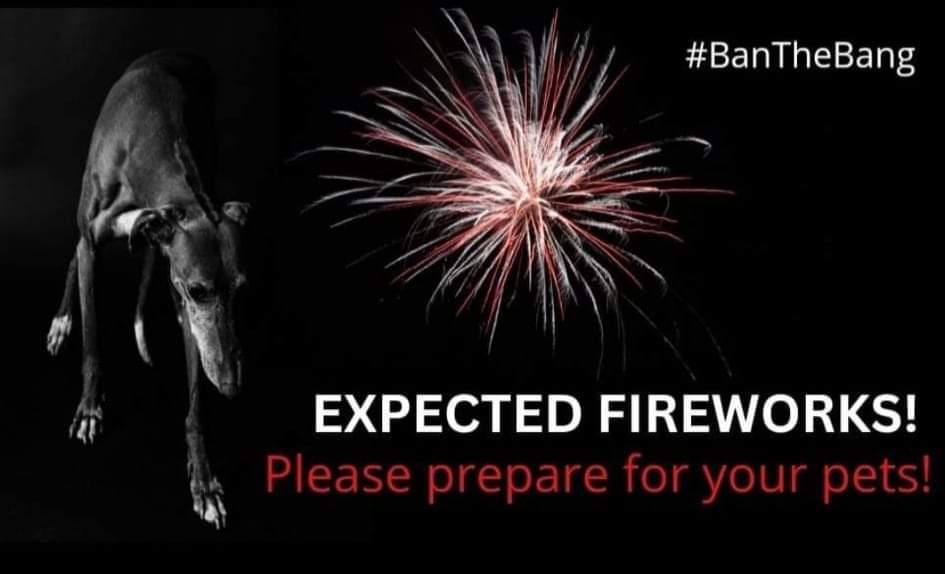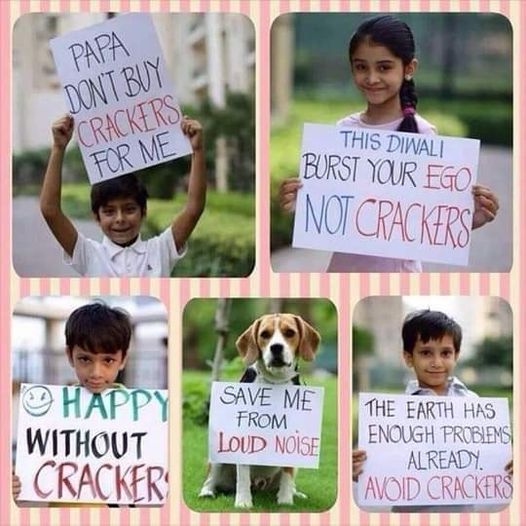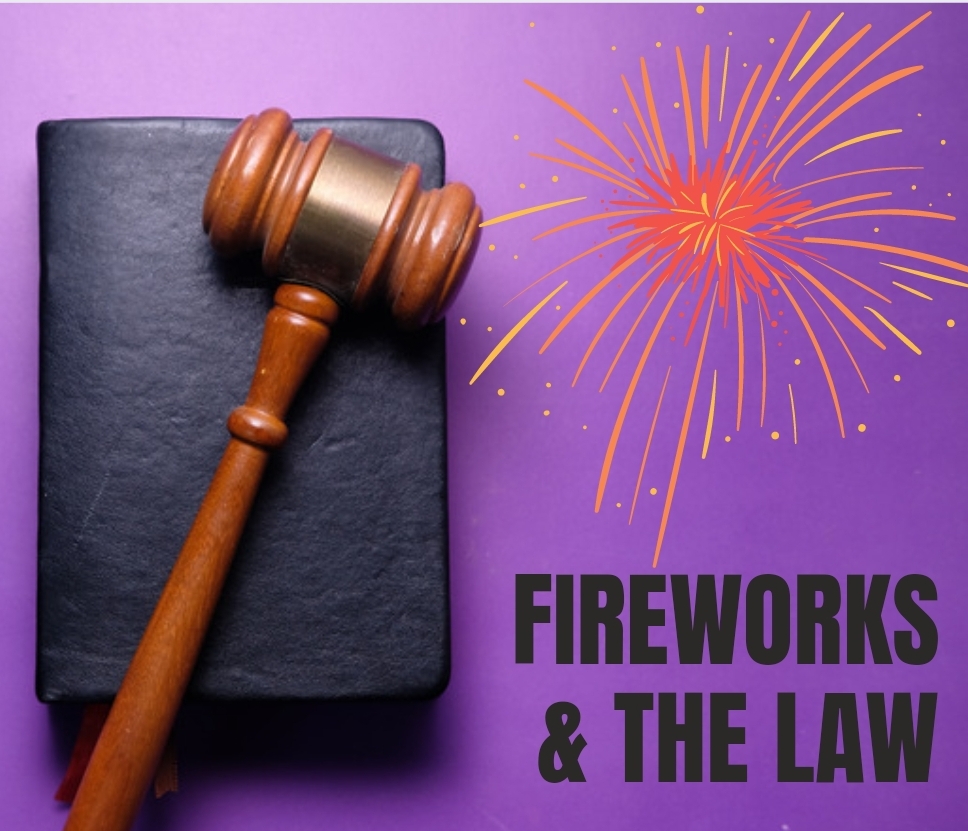
CELEBRATING THE FESTIVAL OF LIGHTS WHILE PROTECTING OUR ANIMAL FRIENDS AND THE ENVIRONMENT.
Diwali, Guy Fawkes, and even New Year’s Eve are quickly approaching, and unfortunately, fireworks are a common part of these celebrations. For pet owners, these holidays and occasions can be a source of anxiety, as the sound of fireworks often sends both domestic and wild animals into a state of panic or paralyzing fear.
Diwali, often called the festival of lights, is one of the most celebrated and spiritually significant occasions in Hindu culture. With roots that date back over 2,500 years, this vibrant festival symbolizes the triumph of light over darkness and good over evil. While families illuminate their homes with diyas and partake in joyous gatherings, the celebration has also become synonymous with a firework display.
As the lights burst and crackle in the night sky, a growing conversation emerges about the impact of these fireworks—not only on our environment but specifically on our beloved pets and wildlife. This article delves into the rich traditions of Diwali, the historical context of fireworks, and the ethical considerations we must remember to ensure that the festival is a joyous occasion for all members of our communities, including our furry friends.

Disclaimer: I am not an expert on Hindu culture and traditions, and I recognize that my perspective may not encompass the full diversity of beliefs and practices within the community. I welcome any corrections or insights from readers to foster a more accurate understanding.
LET’S TALK DIWALI, RIGHTS & FIREWORKS
We acknowledge that not all Hindus share the same views, and many actively choose kindness, tolerance, and environmental protection. I touch on fireworks and specifically mention Diwali as it will be celebrated from tomorrow, and because, among various festivals, it is the only one where religious reasons are claimed for the use of fireworks, by some individuals.
When we advocate against fireworks during Diwali, which happens to be in a sense the start of the firework “season”, there are always those who “attack” us and claim one or all of the following:
1. We infringe on Hindu’s rights to religious and cultural freedom.
2. We only fight against Diwali and not other holidays.
3. Their animals are fine.
4. They also claim that we know nothing about the culture.
I will get back to number one last……….
2. If you look at my pages or posts and those of my fellow anti-fireworks activists, you will see that it is an all-year-round thing, but more posts will surface more frequently during the firework “season”. Asking nicely does not appear to work, so we will fight till our last breath, to help stop this for the sake of animals and the environment.
3. Many can’t see Diwali as anything else than the day when they’re supposed to shut their doors and tranquilize their pets to help these sentient beings cope. Whose fault is that? I can’t describe the sadness I feel when I see an animal panic and there is only so much you can do! Not even the best medication or interventions help for some. Those who work in animal shelters see far worse and it breaks them!
Animals can hear sounds 5-10 times louder than us. Not all animals have a noise phobia, but research shows around 50% of all cats and dogs do. It also shows that when exposed to even just a recording of these sounds, their cortisol levels (stress hormone) go up 200%. They shake a lot, their heart rate elevates, and their breathing becomes hyperventilated.
Those who make this claim, their animals might have been exposed to it from a young age, but no doubt their first experience must have been terrifying. Saying these animals got used to it, is not acceptable as abused animals can also get “used” to it, but that still does not make it right. It is possible that their hearing might have been damaged at a young age and it would be interesting to test the theory in those animals, including their hearing, their stress levels, behaviour, heart health, and premature death. Most people actually can’t read the calming signals of animals.
4. In my opinion, people use this as an easy way out when their argument has no substance. They also tend to not answer the questions you ask, which is a dead giveaway. That together with name-calling and anger, are typical signs of talking to someone who does not use logic. It doesn’t matter which religion you follow; no one can claim the monopoly on knowledge. You can also not use your religion as Carte Blanche.
Now for the number one claim………….

UNDERSTANDING DIWALI
Here is my understanding of Diwali:
Hinduism is believed to be the oldest religion in this world, with its origins dating back to more than 4,000 years ago. Deepavali (Diwali), which is interpreted as the festival of lights, dates back at least 2,500 years ago.
The word Diwali (or Deepavali as it’s sometimes called) means “row of lights” in an Ancient language of India, called Sanskrit. During this festival, people decorate their homes with lights and oil lamps, called diyas. Diwali is much more than the lighting of fireworks.
Steeped in spirituality, glorious tradition, and a history going back thousands of years, Diwali celebrates the triumph of light over darkness, good over evil, and knowledge over ignorance. It’s a pan-India festival.
Some use the argument that taking away fireworks on Diwali is like taking away Christmas trees on Christmas. That is a weak argument as Christmas trees have nothing to do with the religion. Even so, the tree is not hurting others when it is on display. Just like many Christians do not understand their religion, I will assume there are many Hindus who don’t understand theirs either.
No religion that supports harm to other living beings, whether directly or indirectly, deserves respect.
HISTORY OF FIREWORKS & DIWALI
When the Diwali festival started, there were no firecrackers—people just lit lamps and diyas. Fireworks were incorporated later, over time. The lighting of fireworks during Diwali is not a religious right but a cultural choice that should not be forced on anyone. So, the assertion that firecrackers are an integral part of Diwali and, by extension, Hindu culture is a bit overstretched.
Gunpowder, the explosive chemical that forms the basis of firecrackers, was invented around 9th century China, several centuries after the Ramayana is said to be dated. According to historians, it was not until the 13th century that firecrackers made their way into India through the Mongols. The use of fireworks in the celebration of Diwali must have come into existence after about 1400 AD, when gunpowder came to be used in Indian warfare, but did not likely start before the 18th century, when Maratha rulers would organize, firework displays for the general public.
The majority of fireworks are made in China. Firecrackers are thus a legacy of the Chinese and the Mughals, which the Hindutva groups are usually keen on distancing themselves from.
HINDU TEACHINGS
When you speak about religious rights, you have to go back to the scriptures and consider what is written down first. That should be your guide. Fireworks were not recorded in Hindu scriptures, were they? Here is my understanding of some of the Hindu teachings which might be applicable in this case:
- Hinduism teaches you that we should rather save than waste money does it not?
- Diwali celebrates the triumph of light over darkness, good over evil, and knowledge over ignorance. If you are hurting your neighbours and animals, and causing disharmony, have you not lost the true essence of Diwali, which is to bring in light and emerge out of the darkness? So choose knowledge and understanding.
- During Diwali, you also have the chance to uphold the Hindu tradition of vasudhaiva kutumbakam (the world is one family). Why not stick to that, and do away with the prevalent tradition of ‘me before you’?
- What about showing Ahimsa? – an Eastern philosophy that promotes respect for all living things and the avoidance of violence.
Are you telling me that there are no alternatives, like silent fireworks, drone shows, or other displays of lights, and that you need to create fear and panic for other living beings, humans, and animals to celebrate your religion?
FIREWORKS & THE LAW

Also, see last week’s article on Halloween safety for pets.
Every right comes with a responsibility and it is that responsibility that gives value to your right. Although people have a right to celebrate their religious and cultural festivals, they are equally obliged to do so in a responsible manner and mindfully.
There are rules about where fireworks may be set off, yet there are those who deliberately flout municipal regulations by lighting noisy and hazardous “crackers” that are illegal – and beyond the times stipulated in our by-laws.
Whilst we all have the right to enjoy ourselves, we have to be mindful of other people who do not burst fireworks and who equally have the right to be protected by the Constitution.
It is cruel to deliberately and unnecessarily cause fear, distress, and anxiety to any animal or person.
Read more about fireworks and the law here.
OTHER CONCERNS AROUND FIREWORKS
Have you ever thought of the following when it comes to fireworks?
• The questionable labour practices used to produce them.
• The use of poisonous chemicals.
• Pollution of the air & land.
• Causing terror and injury to our fellow earthlings.
• Fright for disabled individuals and some children.
• Triggers for PTSD sufferers, especially war veterans.
• Health concerns
• Noise pollution that can damage hearing
Which person in their right mind can still burst fireworks if you THINK of all the above? How can you justify it in the name of religion or tradition? Have you no compassion?
Have you volunteered at animal shelters to see the damage? Spoke to owners of pets who go into a frenzy and panic. Donated to them to clean up the mess of 30 to 60 % increase of lost pets post fireworks displays? Your fun is over in a few minutes but the harm to them can continue for days and longer.
PREPARING YOUR PETS FOR FIREWORKS

Also, see more about fireworks and preparing your pets for these events.
As Diwali approaches, it is essential to reflect on the true essence of this cherished festival. While fireworks may add a festive flair, they can also pose significant challenges to our pets and the broader community. By embracing the core values of Diwali—such as compassion, responsibility, and unity—we can create a more harmonious celebration that honors both tradition and the well-being of all living beings. Let us choose to illuminate our homes with love and understanding, ensuring that the spirit of Diwali shines brightly for everyone, including our four-legged family members. In doing so, we not only celebrate the triumph of light but also the importance of kindness and consideration in our shared world.
Happy Diwali to those who celebrate! May your festival of lights be filled with happiness and prosperity.
Join us again next week as we look into animal matters.
WHEN YOU KNOW BETTER, DO BETTER!